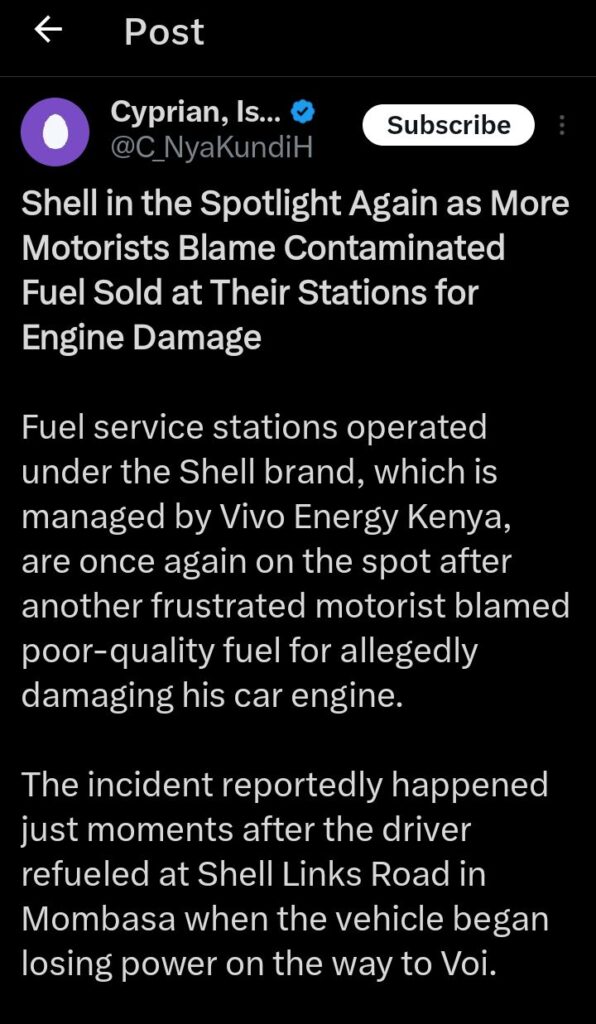Shell fuel stations, managed by Vivo Energy Kenya, are once again in the spotlight after another motorist came forward with claims of contaminated fuel causing engine damage.
This incident was recently shared by Cyprian Nyakundi on his X page, bringing attention to the growing concerns among Kenyan drivers about the quality of fuel sold at Shell stations.
The motorist in question refueled at Shell Links Road in Mombasa and shortly after, while driving to Voi, the vehicle began losing power.

The problem worsened, and the car eventually stalled a few kilometers before Kitui. A local mechanic diagnosed severe engine damage, including a completely worn-out piston, and pointed to contaminated fuel as the likely cause.
The motorist reported the issue to Vivo Energy Kenya, and a representative requested a fuel sample for testing. The company later informed the motorist that the sample had passed all tests.
However, the motorist remained unconvinced and instructed their mechanic to conduct a more thorough inspection. Upon dismantling the engine, the mechanic confirmed that one piston was completely worn out, a condition consistent with prolonged exposure to poor-quality fuel.
The motorist also gathered video evidence showing the fuel sample in a mixed and compromised state, appearing discolored and inconsistent with high-grade V-Power petrol.
Despite presenting this evidence, Vivo Energy maintained that their tests found no issues with the fuel.
Frustrated by the company’s response, the motorist is now escalating the matter, calling for independent testing to verify the fuel’s quality. They are also considering legal action and have reached out to consumer rights groups for support.
This case adds to a growing number of complaints from Kenyan motorists about fuel quality issues at Shell stations.
Recent independent tests, shared widely on social media, have exposed discrepancies in octane levels at various stations, with some premium fuels, including Shell V-Power, underperforming compared to standard fuels. These findings have sparked outrage and demands for accountability from fuel retailers.
Cyprian Nyakundi’s post on X has amplified the conversation, drawing attention to the need for stricter oversight and transparency in the fuel industry.
Consumer advocacy groups are urging the Energy and Petroleum Regulatory Authority (EPRA) to conduct random and independent fuel quality tests, arguing that the current reliance on oil marketers’ internal tests is inadequate.
Lawmakers are also joining the debate, calling for stricter penalties for companies found selling substandard fuel.
For motorists like the one affected at Shell Links Road, the issue is not just about technical standards but about accountability and compensation for the damages suffered.
The call for action grows louder, with motorists and advocacy groups demanding better protection and transparency in the fuel industry.

